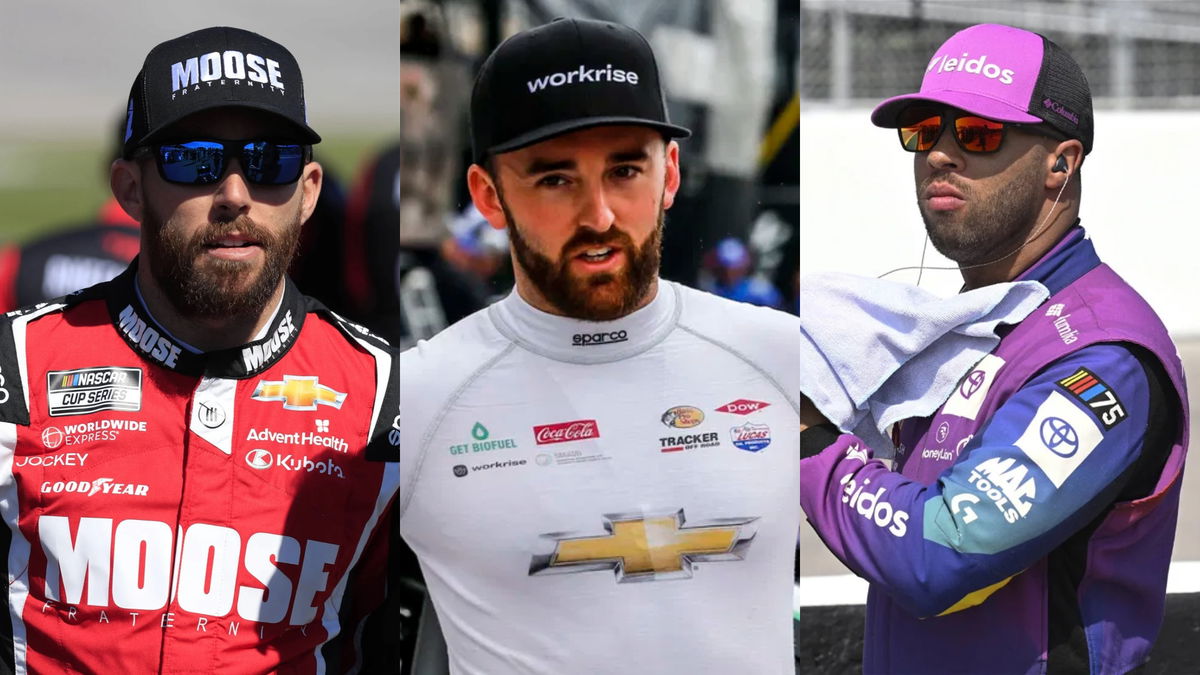
Imago
Image Credits: Imago

Imago
Image Credits: Imago
In the aftermath of the controversial XFINITY 500 at Martinsville, NASCAR dropped significant penalties on Trackhouse Racing, Richard Childress Racing (RCR), and 23XI Racing for manipulating the race outcome. The penalties included suspensions for key team members, driver point deductions, and hefty fines. The three organizations were caught up in a situation that impacted not only race results but the NASCAR Cup Series Playoffs, with heavy implications for the drivers involved.
Watch What’s Trending Now!
The penalties were severe, but as appeals loom, the question on everyone’s mind is whether these teams will face an even harsher fate. According to NASCAR expert Bob Pockrass, Trackhouse Racing and RCR were scheduled to present their appeals, with no decisions expected until later in the day. As fans weigh in, the uncertainty builds—could NASCAR increase the penalties, or are the current sanctions as tough as it gets?
NASCAR guidelines shield Chevrolet manipulation drivers
As the penalties for manipulation roll in, it’s clear that NASCAR’s imperfections might just have worked in favor of Bubba Wallace, Ross Chastain, and Austin Dillon, keeping them from facing an even worse fate. Despite the severity of the punishments—50-point deductions, $100,000 fines, and suspensions for team executives, crew chiefs, and spotters—the outcome could have been much worse.
One fan asked Pockrass if the precedent set by the Michael Waltrip Racing Spingate ruling could influence the penalties handed out for the Martinsville controversy. Essentially, during 2013’s Federated Auto Parts 400, MWR’s Clint Bowyer caused a caution with ten laps remaining. In the ensuing chaos of pitstops, Bowyer’s teammate Martin Truex Jr. came off in a better spot in terms of his finish and qualification for the next round. Later, once NASCAR found evidence Bowyer’s spin was to give his teammate an advantage, they immediately docked points from both drivers’ tally.
As Bob Pockrass pointed out on X, the appeal process for both Trackhouse Racing and RCR was still pending as of Wednesday afternoon. A fan wondered if NASCAR could drop a harsher penalty, perhaps taking inspiration from the Michael Waltrip Racing precedent that resulted in driver suspensions. Pockrass quickly responded, explaining that NASCAR’s penalties have set boundaries: a range of 25-50 points, fines between $50,000 and $100,000, and various forms of suspension.
they can’t go outside the guidelines, which are 25-50 points, $50,000-$100,000 fine, suspension, indefinite suspension, or membership revocation. https://t.co/lmpDQJoqsq
— Bob Pockrass (@bobpockrass) November 7, 2024
The implication here? The drivers are somewhat insulated from the worst-case scenario. While the penalties hit the teams hard, especially financially, the guideline restrictions in place ensure that their fates won’t get any more brutal than what’s already been handed down. One thing to remember here is that there is a big difference between Spingate and what happened during the Martinsville weekend. There weren’t any cautions or wrecks because the OEMs defended each other. Perhaps this could be one thing that factors into the decisions.
It’s a bit of a “good ole’ boy” safety net—this time, NASCAR’s rules might just be the shield that prevents a $200,000 bomb from dropping on these teams and their drivers. The appeals could tweak the fines or suspensions, but it’s unlikely we’ll see the kind of draconian sanctions some fans feared.
What exactly happened with the Chevrolet teams at Martinsville?
The manipulation during the Martinsville race unfolded as Trackhouse Racing, Richard Childress Racing, and 23XI Racing worked together in a coordinated effort that altered the race’s outcome. In the closing laps, drivers from these teams, including Ross Chastain, Austin Dillon, and Bubba Wallace, engaged in strategies that appeared to bend the rules to benefit certain drivers’ positions in the standings.

USA Today via Reuters
Feb 14, 2024; Daytona Beach, Florida, USA; NASCAR Cup Series driver Ross Chastain (1) during qualifying for the Daytona 500 at Daytona International Speedway. Mandatory Credit: Mark J. Rebilas-USA TODAY Sports
While it wasn’t obvious to all fans, NASCAR later determined that their actions were an attempt to influence the results and gain an unfair advantage, which led to the penalty announcements. As a result of their manipulation, all three teams were fined 100,000 each and docked 50 points for both drivers and owners, significantly affecting their standings. Key personnel from each team, including crew chiefs, spotters, and executives, were suspended for the upcoming race at Phoenix.
Do you think that Chevrolet teams and drivers deserve the penalties they are being given for manipulating the race? Share your thoughts in the comments below.

